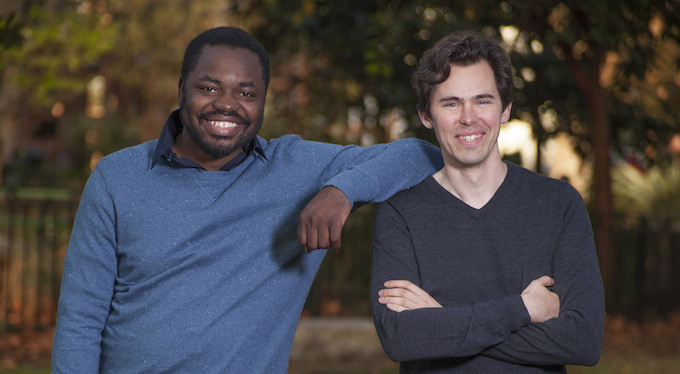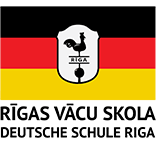Most founders don’t walk away from their startup after raising $ 32 million and reaching 1000 clients. But Roger Dickey’s heart is in consumer tech, and his company Gigster had pivoted to doing outsourced app development for enterprises instead of scrappy entrepreneurs.
So today Dickey announced that he’d left his role as Gigster CEO, with former VMware VP Christopher Keane who’d sold it his startup WaveMaker coming in to lead Gigster in October. Now, Dickey is launching Untitled Labs, a “search lab” designed to test multiple consumer tech ideas in “social and professional networking, mobility, personal finance, premium services, health & wellness, travel, photography, and dating” before building out one
 Untitled Labs is starting off with $ 2.8 million in seed funding from early Gigster investors and other angels including Founders Fund, Felicis Ventures, Caffeinated Capital, Joe Montana’s Liquid Ventures, Ashton Kutcher, Nikita Bier of TBH (acquired by Facebook), and Zynga co-founder Justin Waldron.
Untitled Labs is starting off with $ 2.8 million in seed funding from early Gigster investors and other angels including Founders Fund, Felicis Ventures, Caffeinated Capital, Joe Montana’s Liquid Ventures, Ashton Kutcher, Nikita Bier of TBH (acquired by Facebook), and Zynga co-founder Justin Waldron.
Investors lined up after seeing the success of Dickey’s last two search labs. In 2007, his Curiosoft lab revamped classic DOS game Drugwars as a Facebook game called Dopewars and sold it to Zynga where it became the wildly popular Mafia Wars. He did it again in 2014, building Gigster out of Liquid Labs and eventually raising $ 32 million for it in rounds led by Andreessen Horowitz and Redpoint. Dickey had proven he wasn’t just dicking around and his search labs could experiment their way to an A-grade startup.
“I loved learning about B2B but over the years I realized my true passions were in consumer and I kinda got the itch to try something new” Dickey tells me. “These things happen in the life-cycle of a company. The person who starts it isn’t always the same person to take it to an IPO. Gigster’s doing incredibly well. It was just a really vanilla separation in the best interest of all parties.”

Gigster co-founders (from left): Debo Olaosebikan and Roger Dickey
Gigster’s remaining co-founder and CTO Debo Olaosebikan will stay with the startup, but tells me he’ll be “moving away from a lot of the day-to-day management.” He’ll be in a more public facing role, evangelizing the vision of digital transformation to big clients hoping Gigster can equip them with the apps their customers demand. “We’ve gotten to a really good place on the backs of the founders and to get it to the next level inside of enterprise, having people who’ve done this, lived this, worked in enterprise for a long time makes sense for the company.”
Olaosebikan and Dickey both confirm there was no misconduct or other funny business that triggered the CEO’s departure, and he’ll stay on the Gigster board. Dickey tells me that Gigster’s business managing teams of freelance product managers, engineers, and designers to handle product development for big clients has grown revenue every quarter. It now has 1200 clients including almost 10% of Fortune 500 companies. Olaosebikan says “We have a great repeatable sales model. We can grow profitably and then we can figure out financing. We’re not in a hurry to raise money.”
Since leaving Gigster, Dickey has been meeting with investors and entrepreneurs to noodle on what’s in their “idea shelf” — the product and company concepts these techies imagine but are too busy to implement themselves. Meanwhile, he’s seeking a few elite engineers and designers to work through Untitled’s prospects.

Dickey said he came up with the “search labs” definition since he and others had found success with the strategy that no one had formalized. The search labs model contrasts with three other ways people typically form startups:
- Traditional Startup: Founders come up with one idea and raise from venture firms to build it into a company that’s quick to start and lets them keep a lot of equity, but these startups often fail because they lack product market fit. Examples: Facebook, SpaceX.
- Startup Accelerators and Incubators: Founders come up with one idea and enter an accelerator or incubator that provides funding and education for lots of startups in exchange for a small slice of equity. Founders sometimes learn their idea won’t work and pivot during the program, which is why accelerators seek to fund great teams, but otherwise operate traditionally. Examples: Y Combinator, 500 Startups.
- Startup Studio: The studios’ founders work with entrepreneurs to come up with a small number of ideas while keeping a significant of the equity. The entrepreneurs operate semi-autonomously but with the advantage of shared resources. Examples: Expa, Betaworks.
- Search Lab: Founders conceptualize and experiment with a small number of startup ideas, then focus the company around the most promising prototype. Examples: Untitled Labs, Midnight Labs (turned into TBH)
Dickey tells me that after 80 angel investments, going to every recent Y Combinator Demo Day, and talking with key players across the industry, the search lab method was the best way to hone in on his best idea rather than just going on a hunch. Given that approach, he went with “Untitled” so he could save the branding work for when the right product emerges. Dickey concludes “We’re trying to keep it really barebones. We don’t have an office, don’t have a logo, and we’re not going to make swag. We’re just going to find the next business as efficiently as possible.”



























